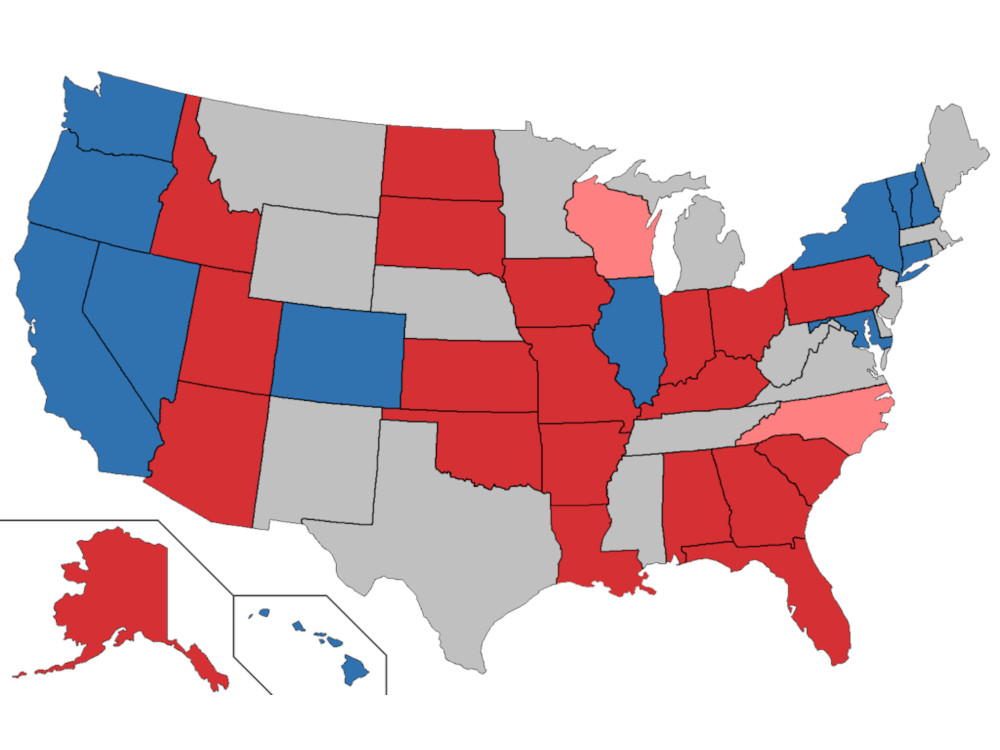Sometimes when you get what you want, it comes with a new set of problems. This is how some of the US anti-abortion activists must be feeling following the US mid-term elections, which saw a mild swing towards the republicans.
With inflation at eight per cent and President Biden’s approval rating hovering around 40 per cent, the expected “red wave” or red tsunami” of republicans gaining a wide margin in both the senate and house of representatives did not happen. Biden’s democratic party has done well in the midterm elections (two years into the president’s four-year term) when a first-term president’s party traditionally can lose up to 40 house seats.
Exit polls from centrist/progressive and conservative sources show that abortion ranked second after the economy in the list of issues ranked by voters on the day. For example Fox new’s exit poll found 24per cent of people ranked abortion as the single most important issue in their vote. In the past this would have been good news for republicans. Not this week.
For decades, abortion has been an issue to exercise conservative-leaning voters to cast a ballot. Evangelicals joined the previously Catholic-based anti-abortion movement, from the 1978 election onwards after Republican strategist Paul Weyrich and prominent Baptist pastor Jerry Falwell picked the issue as one that could energise a large bloc of votes for conservative causes, taking advantage of an existing unease about abortion. It boosted Ronald Reagan into the Whitehouse in the 1980 election. Voting
Reagan appointed conservative justices to the Supreme Court, but they modified rather than set aside the Roe v Wade decision that had legalised abortion in 1973. Republican presidential candidates had a perfect issue that would draw votes without getting to the point of actually overturning Roe, against the background of the general popularity of abortion, with some restrictions such as a time limit. US Polls have consistently shown that US citizens favour what they see as a “middle ground” on abortion.
Until Trump, who thanks to a republican Senate holding up the appointment of Obama’s candidate for the Supreme Court Merrick Garland, now the Attorney-General, quickly got two nominees onto the Supreme Court, and then a third with the death of feminist icon Ruth Bader Ginsberg. This sold conservative majority sealed the fate of Roe V Wade.
But it also sealed the fate of abortion as a Republican strategy to get out the vote. The Democratic party appears to be the beneficiary of the abortion issue this time around with a high motivation to vote in the midterms. Apparently, Democrat turnout for midterm elections is often lower than for the years when the President is elected. Not so this year.
In five states, initiatives (what Australians would call referendums) saw three state constitutions changed to create permanent rights to abortion, in California, Vermont, and Michigan. In Kentucky, conservatives sponsored an initiative to “state there is no right to abortion, or any requirement to fund abortion”, in the State Constitution. It failed 52 to 48 per cent.
However, in Montana a referendum to enact a law that doctors should make every effort to save children “born alive” after an abortion passed 52 to 48.
The exact effect of abortion on the election result will become clearer, and possibly much debated as exit polls are examined in the next few weeks.

